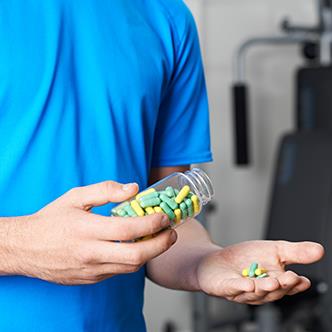
Taking steroids for two or more years may have permanent effects on the heart, based on a recent study of 140 male weight lifters.
Published in the American Heart Association journal Circulation, this study looked at the effects of long-term steroid use on the heart. Anabolic steroids are synthetic substances, derived from the male hormone testosterone, that increase muscle size and strength. While steroids may be used to treat certain health problems like delayed puberty, an estimated 2.9 to 4 million Americans have taken steroids without a prescription to boost athletic performance or appearance. Taking high doses of steroids illegally can have serious negative effects on health, including the heart.
In the recent study conducted at Massachusetts General Hospital, researchers used imaging tests to compare the heart function of steroid-users versus non-users. The study included 140 male weight lifters between 34 and 54 years of age. Among participants, 86 reported using anabolic steroids for at least two years, while 54 reported never using steroids.
After analyzing test results, researchers found that steroid users had significantly weaker hearts than those who never used steroids. Among steroid users, men that currently used anabolic steroids had significantly worse heart function than past users.
Authors also found that steroid users had significantly more plaque build-up in their arteries than non-users. The longer men reported taking steroids, the worse their arteries were. Plaque build-up is a sign of heart disease, which is the No. 1 killer of men and women in the United States.
This is the first study of its kind to demonstrate the negative effects of long-term steroid use on the heart. According to authors, it should serve as a stark warning about the dangers of steroid use. This study shows that taking steroids, even for a short period of time, may cause permanent damage to the heart. Findings also suggest that the more steroids a person takes over time, the worse the heart damage will be. Experts hope these findings will prompt better education to reduce illicit steroid use, particularly among athletes and weight lifters in whom steroid use is most common.